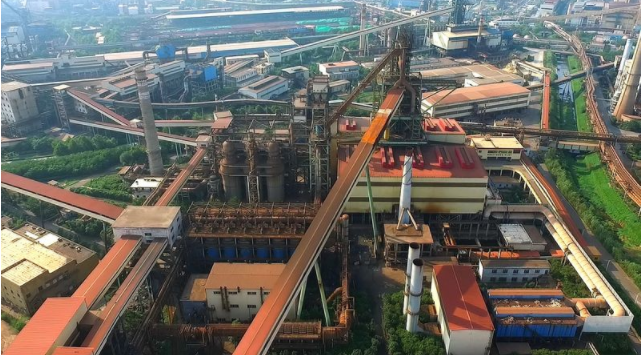
Bloomberg reports: "In pockets of China's industrial heartland, a government push to clean up the environment and cut excess output is starting to bite: Furnaces have gone cold, the lights have been switched off, migrant workers are drifting back home...And if comments made by Zhou Xiaochuan, Governor of the People's Bank of China are any guide, a shift in the economy to consumption and away from investment and exports may yet produce an even stronger performance. Speaking in Washington late Sunday, Zhou said he hoped that a 7 percent expansion for the second half was possible, according to a statement. China's reflation also continues, with producer prices rising 6.9 percent in September from a year earlier, data released Monday showed.For China's leadership -- gathering this week at the 19th Communist Party Congress -- cleaning the noxious skies and filthy rivers has become a priority. In contrast to previous leaders' growth-at-all-costs approach, President Xi Jinping and his premier have declared war on pollution, spurred by the anger of citizens enshrouded in smog that's sometimes more than 50 times more toxic than levels deemed safe by the World Health Organization.That political will overlaps with an economic need to rein in surplus production of steel, aluminum and other basic materials after years of over-investment. How and when that capacity gets replaced will be a key factor in the economy's performance beyond 2017."
New York Times reports that the leaders of the world's top central banks who risked trillions of dollars and their reputations to rescue the global economy are now set to walk off stage at a time when the lingering effects of the crisis, evolving technology and a combustible political landscape will challenge their successors. The Federal Reserve, the Bank of Japan and the People's Bank of China may all have new bosses in early 2018 and there will be a new head of the European Central Bank the following year. The new leaders will have to deal with the hangover from the 2007-2009 crisis and its immediate aftermath as well as newly emerging risks. Some $10 trillion in assets bought by the Fed, the ECB and the BOJ to prop up their economies remains on the books and will have to be pared back. Stubbornly low global inflation and weak growth complicate the return to more conventional policies. There are unfinished reforms in China and Europe, while the rise of nationalism could erode central bank independence. Further ahead, the spread of cryptocurrencies and other technologies threatens to weaken central bank control over the financial system.
- 2017-10-13 China’s trade with North Korea slumps as nuclear sanctions finally start to bite
- 2017-10-12 Big twice-in-a-decade meeting in China may have a curious market impact
- 2017-10-11 China treats its foreign aid like a state secret. New research aims to reveal it.
- 2017-10-10 Chinese yuan strengthens in a sign of 'overriding stability' ahead of the key 19th Communist Party Congress
- 2017-10-09 1.34 million officials have been punished for graft since 2013, Chinese watchdog says
- 2017-10-06 U.S. defers China aluminum foil dumping decision
- 2017-10-05 High-level US-China Talks Focus on Immigration, Fugitives
- 2017-10-05 High-level US-China Talks Focus on Immigration, Fugitives
- 2017-10-04 Ivanka Trump's business in China shrouded in secrecy as public trade data disappears
- 2017-10-03 This week, half of China’s population is on the move
- Bloomberg A Beautiful Opportunity in China
- Bloomberg China Set to Overtake Hong Kong as Thai Property Developer's Top Foreign Market
- Financial Times China producer price growth hits 6-month high
- Financial Times Chinese economy to grow 7% in H2: PBoC head
- Financial Times China's party congress will matter for investors this time
- The Washington Post Tillerson: NKorea diplomacy continues until 1st 'bomb drops'
- Financial Times China seeks dominance of global AI industry
- Forbes Will Travel For Health: Chinese Go Abroad For Medical Treatments
- Bloomberg In China, Trading Begins on WeChat
- Bloomberg China's Zhou Warns Corporate Debt Too High, Urges Fiscal Reform
- The Washington Post Philippine, Australian forces stage sea drill as ties deepen
- Financial Times Will China's party congress offer monetary policy clues?
- Financial Times China's next five years: 'Only Xi is indispensable'
